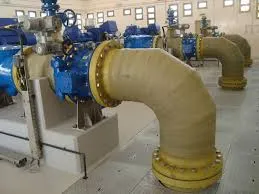
-
 Afrikaans
Afrikaans -
 Albanian
Albanian -
 Amharic
Amharic -
 Arabic
Arabic -
 Armenian
Armenian -
 Azerbaijani
Azerbaijani -
 Basque
Basque -
 Belarusian
Belarusian -
 Bengali
Bengali -
 Bosnian
Bosnian -
 Bulgarian
Bulgarian -
 Catalan
Catalan -
 Cebuano
Cebuano -
 China
China -
 China (Taiwan)
China (Taiwan) -
 Corsican
Corsican -
 Croatian
Croatian -
 Czech
Czech -
 Danish
Danish -
 Dutch
Dutch -
 English
English -
 Esperanto
Esperanto -
 Estonian
Estonian -
 Finnish
Finnish -
 French
French -
 Frisian
Frisian -
 Galician
Galician -
 Georgian
Georgian -
 German
German -
 Greek
Greek -
 Gujarati
Gujarati -
 Haitian Creole
Haitian Creole -
 hausa
hausa -
 hawaiian
hawaiian -
 Hebrew
Hebrew -
 Hindi
Hindi -
 Miao
Miao -
 Hungarian
Hungarian -
 Icelandic
Icelandic -
 igbo
igbo -
 Indonesian
Indonesian -
 irish
irish -
 Italian
Italian -
 Japanese
Japanese -
 Javanese
Javanese -
 Kannada
Kannada -
 kazakh
kazakh -
 Khmer
Khmer -
 Rwandese
Rwandese -
 Korean
Korean -
 Kurdish
Kurdish -
 Kyrgyz
Kyrgyz -
 Lao
Lao -
 Latin
Latin -
 Latvian
Latvian -
 Lithuanian
Lithuanian -
 Luxembourgish
Luxembourgish -
 Macedonian
Macedonian -
 Malgashi
Malgashi -
 Malay
Malay -
 Malayalam
Malayalam -
 Maltese
Maltese -
 Maori
Maori -
 Marathi
Marathi -
 Mongolian
Mongolian -
 Myanmar
Myanmar -
 Nepali
Nepali -
 Norwegian
Norwegian -
 Norwegian
Norwegian -
 Occitan
Occitan -
 Pashto
Pashto -
 Persian
Persian -
 Polish
Polish -
 Portuguese
Portuguese -
 Punjabi
Punjabi -
 Romanian
Romanian -
 Russian
Russian -
 Samoan
Samoan -
 Scottish Gaelic
Scottish Gaelic -
 Serbian
Serbian -
 Sesotho
Sesotho -
 Shona
Shona -
 Sindhi
Sindhi -
 Sinhala
Sinhala -
 Slovak
Slovak -
 Slovenian
Slovenian -
 Somali
Somali -
 Spanish
Spanish -
 Sundanese
Sundanese -
 Swahili
Swahili -
 Swedish
Swedish -
 Tagalog
Tagalog -
 Tajik
Tajik -
 Tamil
Tamil -
 Tatar
Tatar -
 Telugu
Telugu -
 Thai
Thai -
 Turkish
Turkish -
 Turkmen
Turkmen -
 Ukrainian
Ukrainian -
 Urdu
Urdu -
 Uighur
Uighur -
 Uzbek
Uzbek -
 Vietnamese
Vietnamese -
 Welsh
Welsh -
 Bantu
Bantu -
 Yiddish
Yiddish -
 Yoruba
Yoruba -
 Zulu
Zulu
Fiberglass Tanks for Efficient and Safe Transport of Liquids and Chemicals
The Advantages of Fiberglass Transport Tanks
Fiberglass transport tanks have become increasingly popular in various industries due to their unique properties and advantages over traditional materials such as steel and plastic. These tanks are constructed from a composite of glass fibers and resin, resulting in a lightweight yet durable solution for transporting liquids, chemicals, and other materials.
One of the primary benefits of fiberglass transport tanks is their corrosion resistance. Unlike steel tanks, which can rust or corrode when exposed to harsh chemicals or environmental factors, fiberglass tanks do not suffer from these issues. This makes them ideal for storing corrosive substances such as acids, fertilizers, and even seawater. The longevity of fiberglass tanks reduces the need for frequent replacements, thereby lowering long-term costs for businesses.
Additionally, fiberglass tanks are significantly lighter than their steel counterparts. This reduction in weight makes them easier to transport and install, saving time and labor costs. The lightweight nature of fiberglass also allows for less robust supporting structures, further contributing to overall cost savings. In many cases, the reduced weight also leads to lower transportation costs, as fewer resources are required to move these tanks.
fiberglass transport tank

Another important advantage of fiberglass transport tanks is their ability to be molded into various shapes and sizes. This flexibility allows manufacturers to create custom solutions tailored to specific operational needs. Whether a business requires a small tank for limited volumes or a large tank for significant storage requirements, fiberglass can accommodate these demands without compromising structural integrity. This versatility makes fiberglass an attractive option for industries ranging from agriculture to pharmaceuticals.
Moreover, fiberglass tanks exhibit excellent thermal insulation properties. This is particularly critical when transporting temperature-sensitive materials. The ability to maintain stable temperatures can prevent product degradation and ensure that shipments arrive in optimal condition. Businesses dealing with food, chemicals, or pharmaceuticals greatly benefit from this feature, as maintaining product quality is paramount.
The maintenance of fiberglass transport tanks is also relatively straightforward. They do not require the same level of upkeep as metal tanks, which often need regular inspections for rust and corrosion. While fiberglass tanks should still be inspected for cracks or damage, the overall maintenance routine is less intensive. This simplicity allows businesses to focus more on their core operations rather than worrying about the upkeep of their storage systems.
In conclusion, fiberglass transport tanks offer a multitude of advantages, including corrosion resistance, lightweight construction, customizability, thermal insulation, and reduced maintenance needs. These benefits make them an increasingly favored choice for industries that require safe and efficient transport solutions. As technology continues to advance, the role of fiberglass in industrial applications is likely to expand, providing companies with sustainable and efficient options for their transport and storage needs. With these tanks, businesses can enhance their operational efficiency while minimizing environmental impact and costs.









